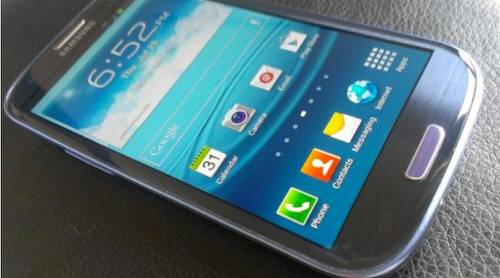
Samsung is turning the smartphone market in to one giant game of Simon Says. Samsung says stand on one foot. Samsung says make bigger phones. Samsung says to make smartphones available to all carriers. Sue the South Korean smartphone manufacturer in every patent court on the planet… Oh, we didn’t say Samsung Says.
Above all, Samsung Says: follow the leader. And like it or not, the rest of the smartphone manufacturing industry is going to have to play Samsung’s game.
It’s Samsung’s Game Now
“Barring an unlikely collapse in Samsung’s business, even Apple will be chasing Samsung’s technology, software, and device leadership in 2013 through the foreseeable future,” said ABI Research senior analyst Michael Morgan in a release.
ABI Research predicts that Apple’s iPhone will top out at 22% of smartphone market share in 2013. Samsung will likely improve on its 30% market share as well as continue to diversify its portfolio.
Samsung rose to prominence on its well-chronicledshotgun approach to smartphone manufacturing. On the strength of Android (which makes up 90% of the company’s mobile portfolio according to ABI), Samsung has inundated the globe with handsets of all shape, sizes and prices. Samsung knows how to hit the top of the market with its Galaxy S and Note lines but also have an extremely effective long tail with its lower-end Galaxy devices and oft-forgotten products using Bada operating system.
Android’s perch atop the global smartphone pyramid is secure… for now. Yet, as history shows us, no technology is ever immune from falling out of dominance and there is a long line of competitors lining up to steal some of Android’s thunder. Research In Motion may find a moderate degree of success with its BlackBerry 10 smartphones that will be announced at the end of this month. Microsoft and Nokia still hope to make a dent with Windows Phone. At this point, those two operating systems are relative known quantities and performance can be predicted with a fair degree of accuracy in the short term. The misnomer, however, are the operating systems that will find their way to market later this year or in 2014.
Call it the Shadow Army. Who knows what it will do or if it will succeed. The actors within that army could be Tizen, Firefox OS, Canonical (Ubuntu) and, if you want to stretch your imagination, possibly Facebook. The Linux-based Tizen is the most likely to rise from the crop and make a discernible dent in the smartphone wars but there is nothing stopping Samsung from championing any one of these fledgling operating systems if they show signs of traction. That would include Windows Phone as well, as Samsung builds devices for Microsoft’s operating system. That is a luxury companies like Apple or Research In Motion do not enjoy. If Nokia ever decides it needs to expand from its Windows Phone-only approach, it could take up manufacturing of some of these other operating systems, but at this point, that seems unlikely as Nokia is currently all in on its Windows Phone bet.
Hence, Samsung’s shotgun approach takes on an added degree of depth and future-proofs its market standing for the rest of the decade. Samsung will likely be happy if Android continues to be its main squeeze but, in the case of a fall from grace, it has any number of players ready to step in off the bench.
Samsung says: check mate.

















